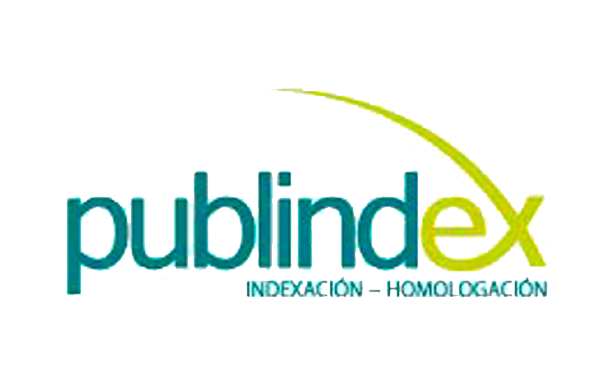Design and development of a questionnaire delphi method chord with virtual laboratories for selecting (LV)
Abstract
The selection of tools to work virtually the practical component in university education is a complex decision where many factors. Objective. Describe the design, adaptation and validation of a questionnaire to select LVs. Methodology-Delphi expert consultation was used to identify the criteria that determine the relevance of the LVs in higher education. For this purpose two groups of cooperative work is created and started from a structured questionnaire that you were adding or modifying the criteria or variables according to the different opinions of experts during three successive rounds. The responses were analyzed statistically. Maximum correlation coefficient of r = 0.93 was obtained, showing a high degree of validity. The method of internal consistency with Cronbach’s alpha coefficient of r = 0.814 and a confidence level of 95% (p ≤ 0.05) was used for the reliability, while for the method of two halves, the coefficient of internal consistency in Cronbach’s alpha is the first half of 0736 and the second half of 0718, the coefficients resulting from the test halves indicate a high reliability index. Heading for administration was constituted I 10 criteria. According to the results, we can say that the questionnaire has been constructed and validated for the assessment of LVs is composed of valid and reliable features.Downloads
References
Acosta, M. & Páez, H. (2007). Estrategias didácticas para educar en valores: 10 valores con intencionalidad. Revista educación en valores, 8, 57-69. Astigarraga, E. (s.f.). El Método Delphi [en línea]. Universidad de Deusto.Tomadode:http://www.unalmed.edu.co/~poboyca/documentos/documentos1/documentosJuan%20Diego/Plnaifi_Cuencas_Pregrado/Sept_29/Metodo_delphi.pdf.
Bruner, J. (2005). A Delphi method of teaching applied phylospphy. Teaching philosophy 8(3), 2007-220.
Cataldi, Z., Chiarenza, D., Dominighini, C., Donnamaría, L. & Lage, F. (2012). TIC en la enseñanza de la química. En: Revista Iberoamericana de Educación en Tecnología y Tecnología en Educación. Vol. 3, no. 7.
Cruz, M. (2006). El Método Delphi en las investigaciones educacionales. Informe Final del Proyecto de Investigación “Estadística para la Educaciónâ€, 1-40.
Díaz, G. (2002). Uso de software educativo de calidad como herramientas de apoyo para el aprendizaje. En: Jornadas educativas: La escuela como instrumento de cambio, IEA, Abril,
Caracas.Tomadode:http://www.academiainteractiva/articulos.html.
González, A; Guerrero, A; Maldonado, J. (2001). Desarrollo de un sistema de experto para la aplicación del Método Delfos (Delphi). BEIO, Boletín de Estadística e Investigación Operativa,
, 4, p.9.
Hernández, R; Fernández, C & Baptista, P. (2006). Metodología de la investigación. México:Mc Graw Hill.
Hsu, Ch. & Sandford, B. (2007). The Delphi Technique: Making Sense of Consensus. Practical Assessment Research & Evaluation, 12(10).
Hurtado, S & Mendez, D. (s.f). Software educativo, Método de Consulta a Expertos (Delphi).CECOFIS, [en línea] 2007. Disponible en: http://www.cecofis.cu/artículo3.asp.
ISO/IEC 9126. Information technology–Software Product Evaluation–Quality Characteristics and guidelines for their use. Consultado el 19 de Julio de 2013 en: http://www.cse.dcu.ie/essiscope/
sm2/9126ref.html.
Jadhav, A & Sonar, R. Evaluating and selecting software packages: A review. En: Information and Software Technology. 2009. Vol. 51, no 3, p. 555–563.
Landeta, J. (2002). El método Delphi. Barcelona: Ariel.
Lee, Q. & Lee, T. (2007). Chapter 11. Evaluation of educational software: theory into practice.In: Technology and Teaching. Editors: Jeff Sigafoos and Vanessa Green.
Linstone H. & Turroff, M. (1975). The Delphi method, techniques and applications, Addison wesley publishing.
Luna, P., Infante, A. & Martínez, F. J. (2006). Los Delphi como fundamento metodológico predictivo para la investigación en sistemas de información y tecnologías de la información (IS/IT). Píxel-Bit. Revista de Medios y Educación, 26, 89-112.
Marqués, P. Plantilla para la Catalogación y Evaluación Multimedia. 2004. Consultado el 08/09/2012 en: http://dewey.uab. es/pmarques/evalua.htm.
Miller, L. (2006). Determining what could/should be: The Delphi technique and its application. Paper presented at the meeting of the 2006 annual meeting of the Mid-Western Educational Research Association, Columbus, Ohio.
Okoli, C. & Pawlowski, S. (2004). The Delphi method as a research tool: an example, design considerations and applications. Information & Management, 42:15-29, USA.
Pozo, M.; Gutiérrez, J. & Rodríguez, C. (2007). El uso del Método Delphi en la definición delos criterios para una formación de calidad en animación sociocultural y tiempo libre. Revista de Investigación educativa, RIE, (25), 2,351-366.
Romero, C, Salicetti, A. (2011). Elaboración y validación de un cuestionario para la aplicación de diferentes estrategias metodológicas en estudiantes universitarios. Congreso i nternacional de investigación educativa. Universidad de Costa Rica.
Sicardi, I. (2004). Análisis de la utilización del software educativo como material de aprendizaje. Revista de Informática Educativa y Medios Audiovisuales. Vol. 1(3), pp. 1-20.
Unesco (2012). Informe de 2012. Los jóvenes y las competencias: trabajar con la educación.
En línea http://www.unesco.org/new/es/education/themes/leading-the-international-agenda/
efareport/ reports/2012-skills (Consulta: febrero, 2013).
SOFIA - SOPHIA
Diseño y elaboración de un cuestionario acorde con el método Delphi para seleccionar laboratorios virtuales (LV)
Verma, R; Gupta, A & Singh, K. (2008). Simulation Software Evaluation and Selection: A
Comprehensive Framework. En: Automation & Systems Engineering. Vol. 2, p. 221-234.
Creative Commosn Licence 4.0








